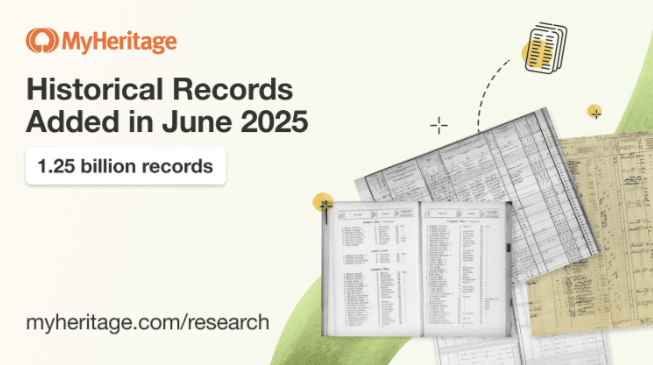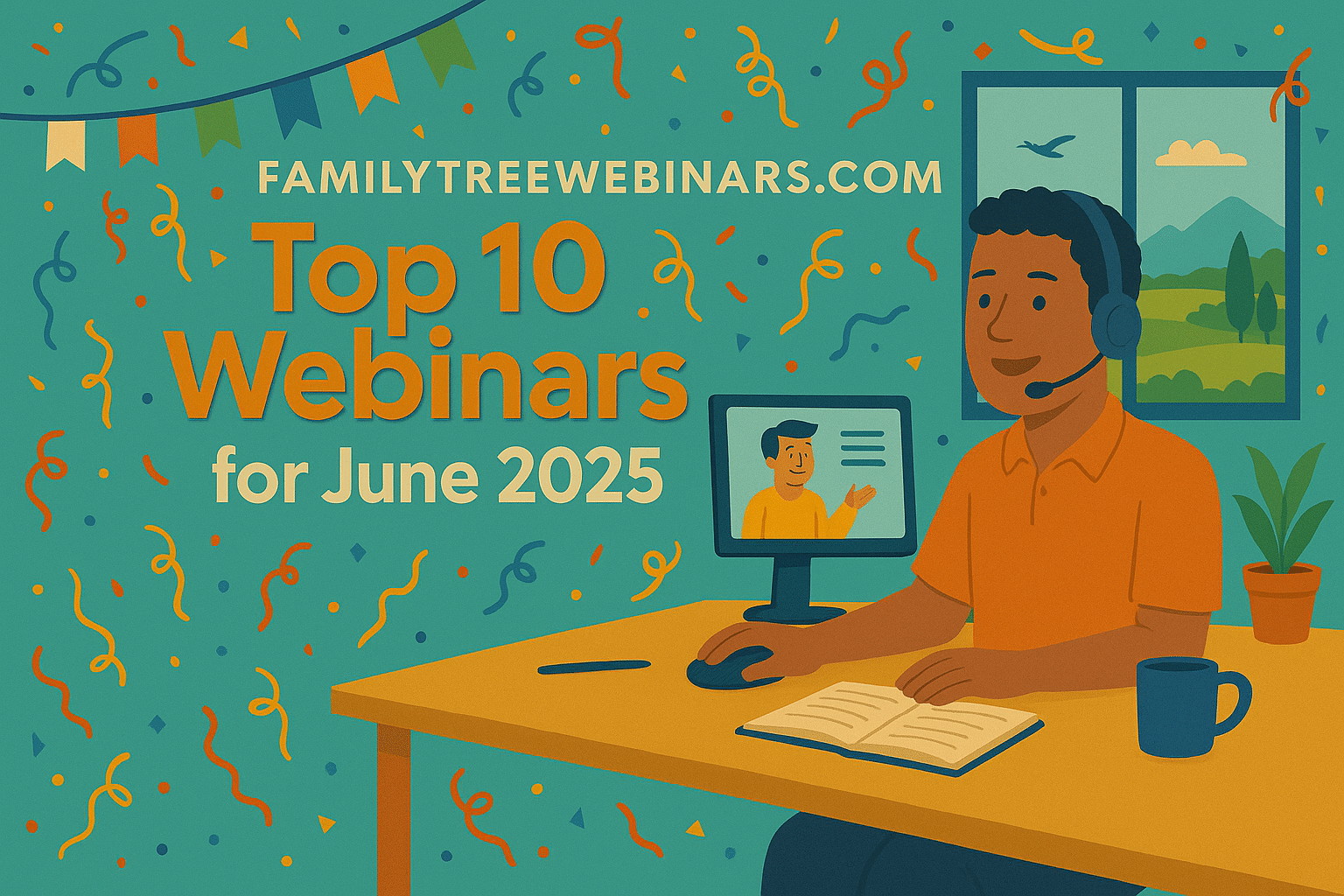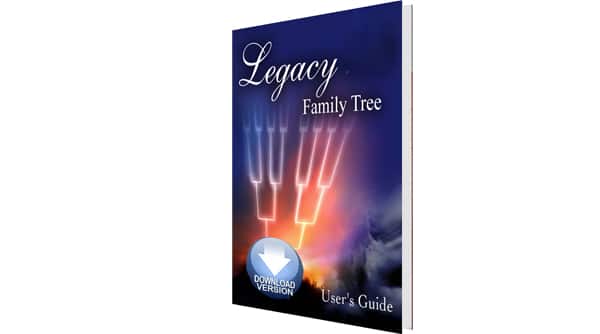Your cart is currently empty!
Announcing Podcasts on EOGN!
The following article is from Eastman’s Online Genealogy Newsletter and is copyright 2006 by Richard W. Eastman. It is re-published here with the permission of the author. Information about the newsletter is available at http://www.eogn.com.
Podcast: I am delighted to announce another expansion of this newsletter’s offerings: podcasts. I will now be offering “radio broadcast” interviews of many of the world’s leading genealogy experts. To listen to these interviews, all you need is your present computer. In fact, there is no requirement for new software; you can use what you already have.
You can listen to this 9 minute, 47 second story using any modern computer that has either speakers or headphones attached. It can also be downloaded to an iPod or other portable music player.
First, a bit of explanation is in order. You may ask, "What’s a podcast?"
Podcasts are audio programs that are available on the Internet. They are similar to radio programs. Instead of listening to the programs on your radio, however, you listen on a personal computer or on any of several mobile devices, such as Apple’s iPod music player.
The term podcast, like "radio," can mean both the content and the method of delivery. The host or author of a podcast is often referred to as a "podcaster".
A single podcast is loosely similar to one episode of a radio program. New episodes can be made either sporadically or at planned intervals, such as daily or weekly. Podcasts are generally devoted to very specific subjects, such as genealogy or other personal interest topics.
Genealogy talk show programs have been available from time to time on various radio stations for years. However, most of these radio broadcasts have disappeared within a year or two. The main drawback of these programs is in timing: they are on the air at the broadcaster’s convenience, not necessarily when it’s convenient for you to listen. For instance, a genealogy program might be broadcast weekly on a local radio station at 10:00 AM on Saturday mornings. If you have the time available, you can listen to it at 10:00 AM, but only at that time. If you happen to be working, grocery shopping, or otherwise unable to listen to the radio at 10:00 AM, you miss the broadcast.
Podcasts are different. They are "broadcasts on demand." That is, you can listen to the podcast whenever you wish, not at the whim of a radio station employee who handles scheduling. If you want to listen at 10:00 AM on Saturday or at 3:00 AM on Tuesday, the podcast is always available and waiting for you. All you need to do to start listening to the podcast is to click your mouse.
Another problem with radio station programs is location: you must be within the coverage area of the broadcaster. More than once, I have been frustrated trying to listen to weak signals from distant radio stations. Static, fading, and various noises detract from the broadcasts.
In contrast, podcasts are available anywhere in the world if you have an Internet connection. You receive the same signal in New York City as you do in Queensland, Australia. The sound quality is always consistent and clear with no static or fading. With today’s technology, podcasts work equally well on dial-up or broadband connections.
You can read more about the mechanics of podcasting on Wikipedia at http://en.wikipedia.org/wiki/Podcast
In the case of this e-newsletter, I plan to use podcast technology to offer you something that has not been practical until recently: interviews with leading genealogy experts, authors, lecturers, programmers, software producers, and more. Instead of just reading the words that I write about a particular product, service, or web site, you will now be able to listen to the words of the person or the people who created the service.
I hope to interview many leaders in the genealogy field in coming months and to make those interviews available as audio files at www.eogn.com. I hope that you will enjoy listening to these industry leaders as they describe the work they have done and the products and services they have created.
Anyone can listen to these interviews. All you need is a computer with either loudspeakers or headphones. Any Windows, Macintosh, Linux, or even most of the handheld computers should work just fine. You won’t need fancy or expensive hardware; almost all computers built in the past five years or so will do. You simply go to a podcast listed on http://www.eogn.com and click on an icon, and the interview will start playing within two or three seconds.
In addition, if you have an Apple iPod or any similar portable music player that supports downloading of podcasts, you can download the interview while connected to the Internet and then take the interview with you. You can listen to genealogy experts while jogging, biking, walking the dog, or riding the commuter train. This can be an excellent way to use what would otherwise be "wasted time."
I expect these interviews to be available on a more or less random schedule. I am not defining a rigid schedule of podcasts in advance. The podcasts will not be broadcast daily or weekly. Instead of having regularly scheduled podcasts, I am planning to make new interviews available as I can schedule interviewees. You might see two or three new interviews become available online one week, but then new podcasts might not appear again for another week, two weeks, or more.
I expect that most of the podcasts will be available free of charge. However, on occasion there may be a podcast that is available only to Plus Edition subscribers, depending on the complexity and the expenses of conducting the interview.
All podcasts will be available via a link on www.eogn.com. Those who read this newsletter in e-mail will not have any huge audio files attached to those e-mail messages. Instead, the e-mail version of this newsletter will simply show a link that points to the online podcast. You can click on that link to have a web browser open and start playing the podcast.
I suspect you will see (or hear) a few rough edges in the first few podcasts as I learn how to optimize the new hardware that I recently purchased for recording these interviews. However, I believe that the quality will improve rapidly in later podcasts.
I am excited about the possibilities of podcasts. First of all, it allows me to dust off my long-dormant broadcasting skills. (I used to be a radio announcer many years ago.) Next, it opens a new path of direct-to-you information. You can now listen to descriptions of new products and services, described by the people who know them best: those who created the products and services being described.
Finally, the use of podcasts should benefit those newsletter readers who have vision problems. I know from earlier feedback that there are a number of subscribers who are blind or have severely limited vision. If you have limited vision, please let me know how well the podcasts work for you.
Regardless of your vision, I hope that you will enjoy these podcasts. As always, your suggestions are welcome.



Comments (0)